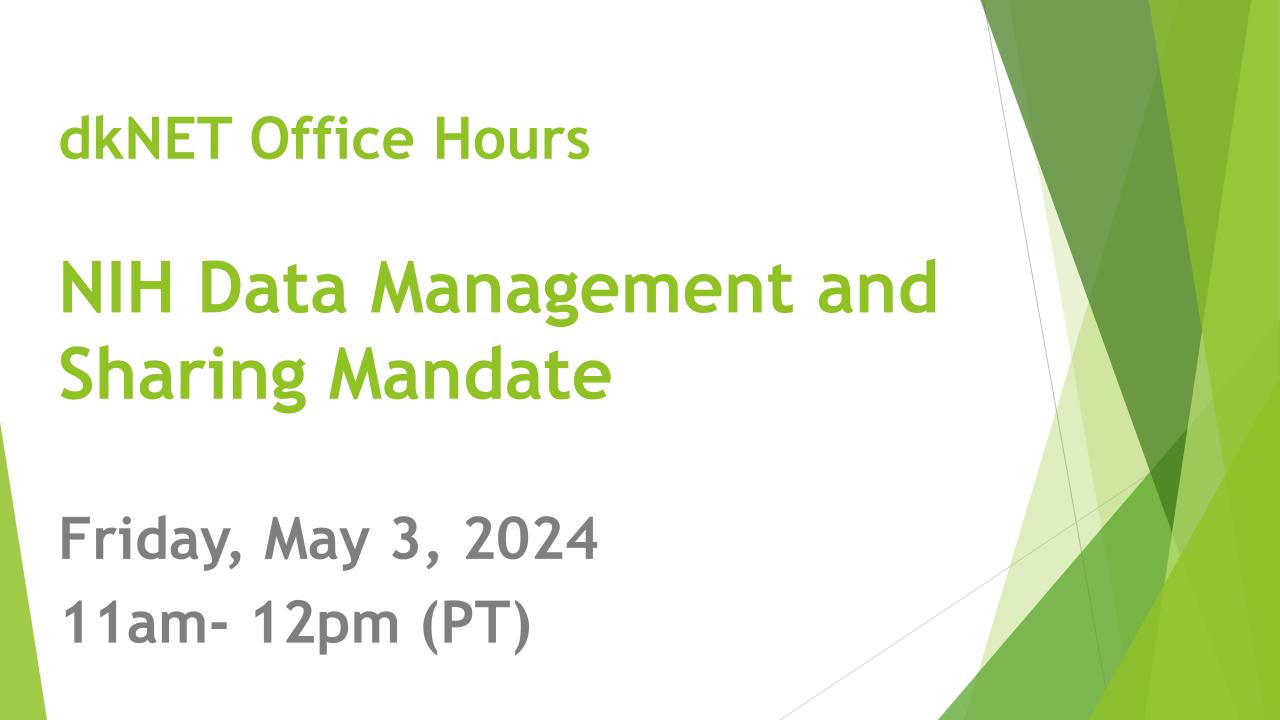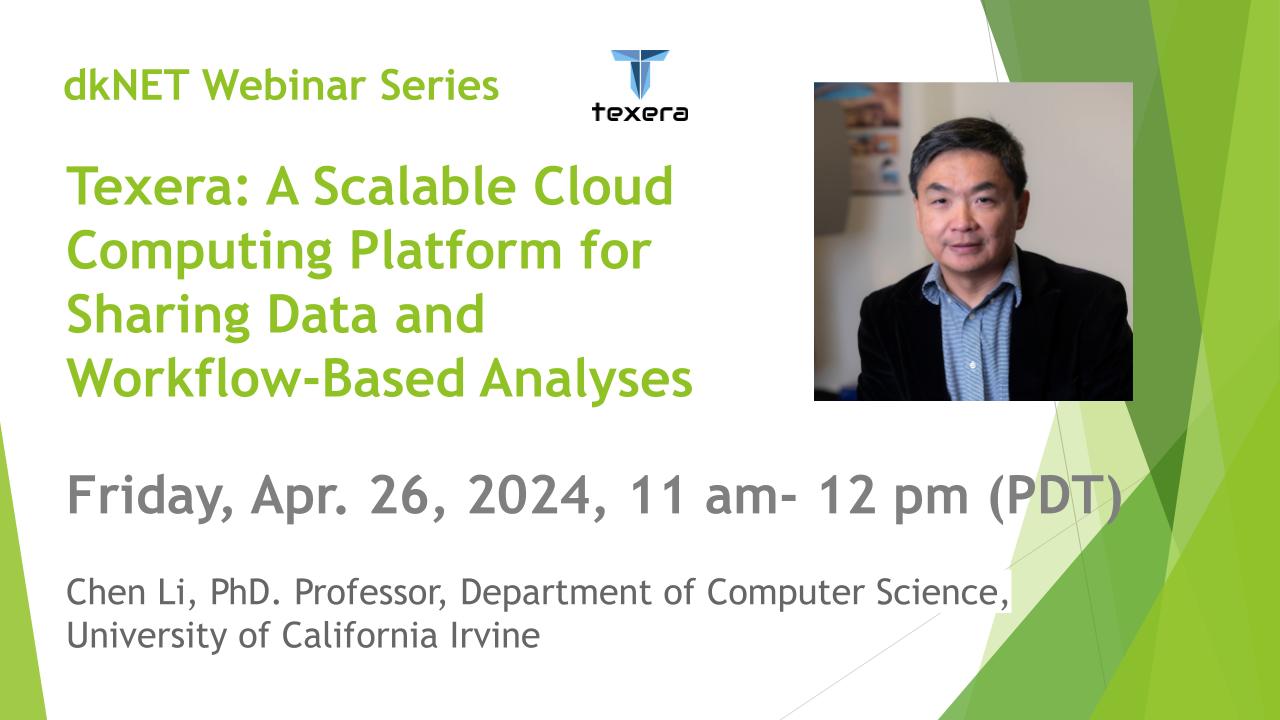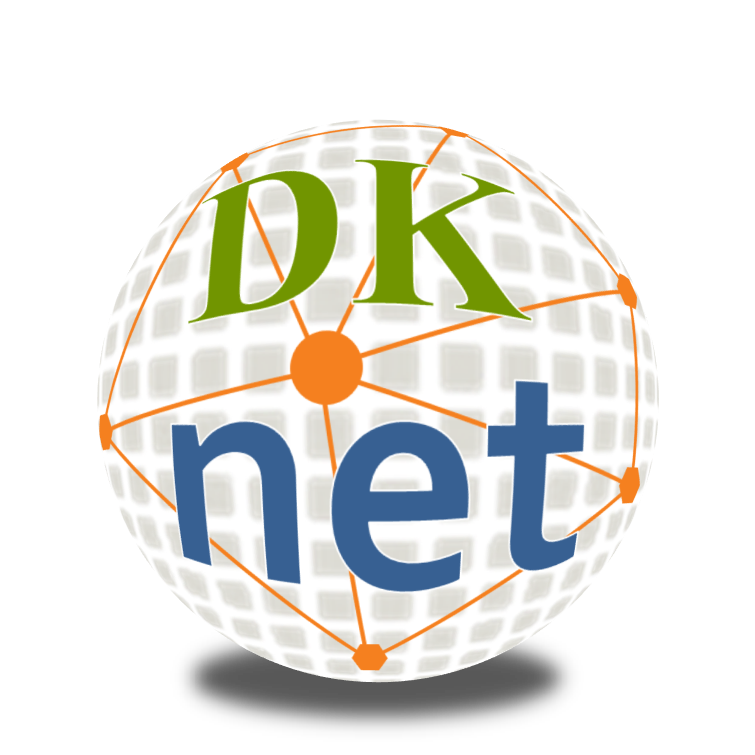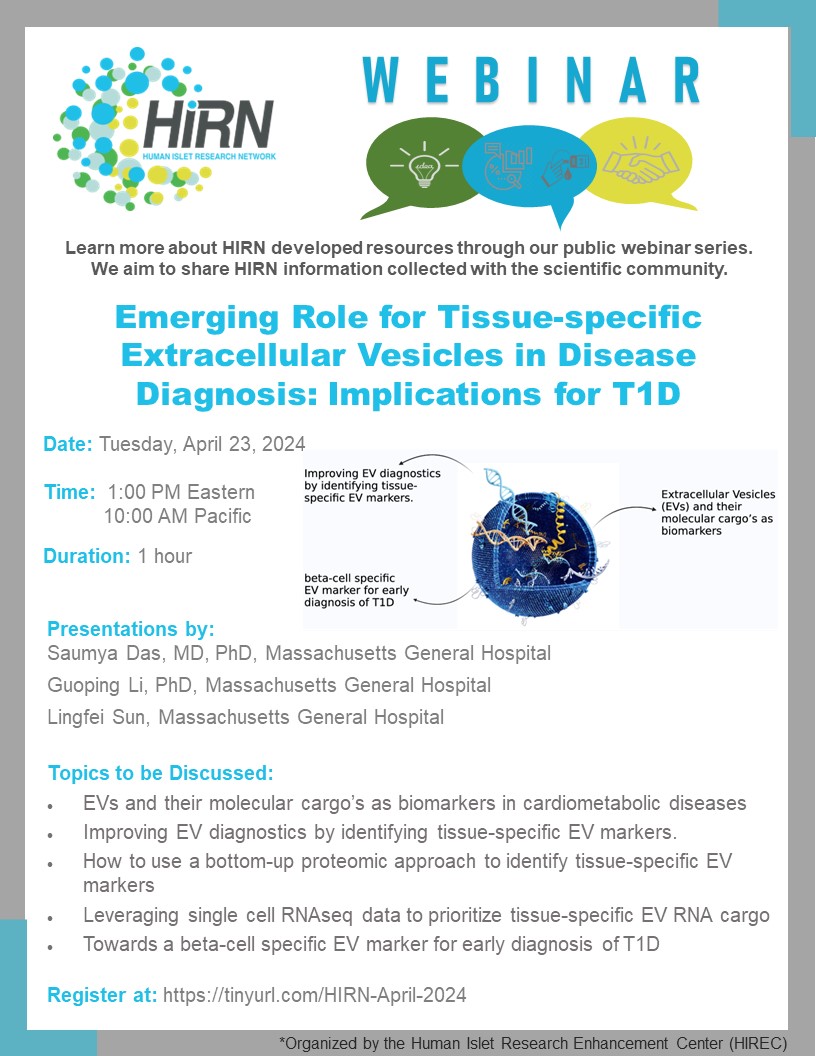Leaving Community
Are you sure you want to leave this community? Leaving the community will revoke any permissions you have been granted in this community.
dkNET community events and announcements in February, 2024
Dear dkNET Community,
dkNET provides updates on activities of interest to the NIDDK-supported community. You could keep up to date on these activities through our Twitter feed @dkNET_info, through our Community Calendar, or through dkNET e-mail list. If you have an event or funding opportunities you'd like to advertise, please contact us info_at_dknet.org.
dkNET News
- Upcoming webinars:
- An Encyclopedia of The Adipose Tissue Secretome to Identify Mediators of Health and Disease, presented by Dr. Paul Cohen on Friday, February 9, 2024, 11 am - 12 pm PT
- The Collaborative Microbial Metabolite Center (CMMC)– Democratizing Mechanistic and Functional Interpretation of Microbial Metabolites, presented by Dr. Peter Dorrestein on Friday, February 23, 2024, 11 am - 12 pm PT.
Feb. 01, 2024
Response deadline: NIH Request for Information (RFI): Best Practice for Sharing NIH Supported Research Software
This Notice is a Request for Information (RFI) soliciting in put on best practices for openly sharing research software including source code, algorithms, scripts, computational workflows, and executables that were created during the research process or for a research purpose. This RFI will inform and frame the National Institutes of Health’s (NIH) guidance regarding development, refactoring, implementation, and sharing of NI H-supported research software.
More information: https://dknet.org/about/dknetnews/2672
Feb. 04-07, 2024
Keystone Symposia "Obesity: Causes and Consequences"
Please note that this is joint meeting with "Cardiometabolic Diseases: the Role of Ethnic Diversity in Precision Medicine". Obesity prevalence has tripled over the past four decades. Together with its wide rang e of comorbidities, it accounts for a large proportion of the worldwide no n-communicable disease burden. One of the critical barriers in effectively tackling obesity is the prevailing societal perception of it being a simple energy balance problem, one that this meeting seeks to dismantle. In truth there are a myriad of causes that lead to obesity, and as a result a wide array of consequences that emerge. Moreover, time is rapidly changing in the field of obesity with the emergence of new and innovative therapies. While the value of model organisms is recognized in the field, this program was designed to focus on the model that matters most: humans.
The goal s of this meeting is to explore the latest in:
(1) causes of obesity, including genetics, environmental impacts, and hypothalamic dysfunction;
(2) how the heterogeneity of obesity impacts upon its precision management;
(3) metabolic consequences of obesity, including Type 2 Diabetes, dyslipidemia, as well as cardiovascular, liver and renal disease
(4) innovation in treatment and new molecular targets.
Location: Vancouver, BC, Canada
More information: https://www.keystonesymposia.org/conferenc es/conference-listing/meeting?eventid=6996
Feb. 05-06, 2024
NIDDK Reimagining Kidney Function Assessment Workshop
The primary goal of this workshop is to critically assess the existing limitations inherent in our current estimates of kidney function. We have focused on glomerular filtration rate (GFR) and proteinuria as measures of kidney functional status and thus have ignored a wide range of important renal mechanisms that may be affected early or differentially in different disease states. This shortsightedness has limited the tools available to phenotype the full spectrum of kidney disease. The aim of this workshop is to propel a paradigm shift towards a comprehensive approach to assessing kidney function and dysfunction that can improve our ability to describe pathophysiologic mechanisms and disease subgroups. Broadening the approaches and tools we use to measure the functions of the entire nephron will allow us to refine disease classification and enable better targeting of treatments at the right time and for the right individuals.
More information: https://www.niddk.nih.gov/news/meetings-workshops/2024/reimagining-kidney-function-assessment-workshop
Feb. 09, 2024
Registration deadline: The NIH-CZI Junior Investigators Atlas Builders Meeting - Cellular & Molecular Human Atlases in Health & Diseases
The NIH-CZI Junior Investigators Atlas Builders Meeting will be held March 17-19, 2024 at 6001 Executive Boulevard, Rockville, MD and virtually. This 2-day meeting will bring together biologists, physician scientists, computational biologists, and other computational experts in the early stages of their careers from the Participant Engagement and Cancer Genome Sequencing (PE-CGS) Network, Human Tumor Atlas Network (HTAN), The Human BioMolecular Atlas Program(HuBMAP), Kidney Precision Medicine Project(KPMP), GenitoUrinary Development Molecular Anatomy Project(GUDMAP), Cellular Senescence Network (SenNet), Brain Research through Advancing Innovative Neurotechnologies(BRAIN) Initiative - Cell Census Network (BICCN), Human Islet Research Network (HIRN) and Chan Zuckerberg Initiative (CZI) Seed Network to work towards building atlases of tissue organization at an unprecedented resolution for answering fundamental questions in human health and disease. For the purposes of this meeting, a 'junior investigator' is defined as a graduate student, postdoc, staff scientist, or early-career faculty. The meeting will include sessions on specific scientific topics, career development, and networking sessions as well as several presentations by plenary speakers. For further information or questions about the meeting program, contact Andreas Bueckle, Ph.D. at abueckle@iu.edu
Location: North Bethesda, MD, USA
More information: https://events.cancer.gov/nci/juniorinvestigatorsatlasbuilders
Feb. 09, 2024
dkNET Webinar: An Encyclopedia of The Adipose Tissue Secretome To Identify Mediators Of Health And Disease
Join dkNET Webinar on Friday, February 9, 2024, 11 am - 12 p m PT
Presenter: Paul Cohen, MD, PhD, Albert Resnick, M.D. Associate Professor, Rockefeller University
Abstract
White and brown adipocytes not only play a central role in energy storage and combustion but are also dynamic secretory cells that secrete signaling molecules linking levels of energy stores to vital physiological systems. Disruption of the signaling properties of adipocytes, as occurs in obesity, contributes to insulin resistance, type 2 diabetes, and other metabolic disorders. Fat cells have been estimated to secrete over 1,000 polypeptides and microproteins and an even larger number of small molecule metabolites. The great majority of the adipocyte secretome has not been defined or characterized. A major obstacle has been the lack of suitable technologies to quantitatively identify circulating proteins and metabolites, determine their cellular origin, and elucidate their function. Building on key innovations in chemical biology and mass spectrometry, our team is generating a n encyclopedia of the white and brown adipocyte secretome in mouse models and humans. Our work has the potential to identify new secreted mediators with roles in obesity, type 2 diabetes, and metabolic diseases, provide a crucial resource for researchers and clinicians, and lead to new biomarker s and therapies.
The top 3 key questions that this resource can answer:
1. What techniques can be used to characterize the secretome of a cell type in vitro and in vivo?
2. What is the full complement of proteins and metabolites secreted by different kinds of adipocytes?
3. How should one prioritize uncharacterized secreted mediators for functional study?
More information: https://dknet.org/about/blog/2706
Feb. 12-15, 2024
Keystone Symposia: Mitochondria Signaling and Disease
Please note that this is a joint meeting with Organelle Membrane Contact Sites in Health and Disease. Mitochondria play complex roles in cellular physiology and homeostasis that have profound impacts on human health and disease. Fundamental insights have been gained from cell biology app roaches that led to a deeper understanding of mitochondria as signaling platforms and metabolic engines that drive changes in cell fate. The challenge has been to understand these roles in a holistic and inclusive way, a task that often requires multidisciplinary and the development of new technologies to bridge gaps in the field.
The primary goal of this symposium is to highlight exiting new areas of mitochondrial research, focused on:
1) aspects of mitochondrial dynamics and quality control,
2) mitochondrial contributions to metabolic rewiring in cell fate decisions,
3) links between mitochondria and immunity with intriguing new discoveries of mitochondrial transfer between cells.
The program will focus on the impact and mechanisms of mitochondrial behavior in a variety of contexts including cancer metabolism, inflammation, neurodegenerative disease and metabolic disorders led by established and emerging experts in the field. Understanding how mitochondria relay intracellular signals in the control of cell fate changes and within homeostasis remains a major challenge. As much of this signaling involves contact sites with other organelles, this conference will be held jointly with another Keystone Symposia meeting entitled, Organelle Membrane Contact Sites in Health and Disease. The joint conferences will examine metabolic flux in the broadest context. Interactions between scientists at all levels will provide new opportunities for collabo ration as research moves to integrate findings into a deeper understanding of mitochondrial contributions to health and disease.
More information: https://www.keystonesymposia.org/conferences/conference-listing/meeting?eventid=6999
Location: Alberta, Canada
Feb. 15, 2024
UF Diabetes Institute Webinar: Using Artificial Intelligence to Address Inequities in Diabetes
Register now for the event "Using Artificial Intelligence to Ad dress Inequities in Diabetes", presented by Georgia Center for Diabetes Translation Research. Online or in person (Malachowsky Hall | NVIDIA Auditorium – 1st Floor 1889 Museum Road, Gainesville, FL 32611.
More information: https://zoom.us/meeting/register/tJEkdOysqDsiE9Jd_go-P_gHCNeazEfRWwkR#/registration
Feb. 23, 2024
dkNET Webinar: The Collaborative Microbial Metabolite Center (CMMC) – Democratizing Mechanistic and Functional Interpretation of Microbial Metabolites
Join dkNET Webinar on Friday, February 23, 2024, 11 am - 12 pm PT
Presenter: Pieter Dorrestein, PhD, Professor, Skaggs, School of Pharmacy and Pharmaceutical Sciences, Department of Pharmacology and Pediatrics, University of California San Diego
Abstract
In the analysis of organs, volatilome, or biofluids, the microbiome influences 15-70% of detectable mass spectrometry molecules. Typically, only 10% of human untargeted metabolomics data can be assigned a molecular structure, with merely 1-2% traceable to microbial origins. Human microbiomes contribute metabolites through the microbial metabolism of host-derived substances, digestion of food and beverage molecules, and de novo assembly using proteins encoded by genetic elements. Despite the significance of microbiome-derived metabolites to human health, there is no centralized knowledge base for community access. To address this, the "Collaborative Microbial Metabolite Center" (CMMC) leverages expertise in mass spectrometry, microbiome innovation, and the GNPS ecosystem to built a knowledgebase. It aims to create a user-accessible microbiome resource, enrich bioactivity knowledge, and facilitate data deposition. The CMMC includes the construction of a knowledge base, MicrobeMASST tool, and health phenotype enrichment workflows, the construction and use will be discussed in this presentation. The use of this ecosystem will be exemplified by the discovery of 20,000 bile acids, many of which were shown to be of microbial origin and linked to diet and IBD.
The top 3 key questions that this resource can answer:
1. How can we leverage the 1000’s of public metabolomics studies to discover microbial metabolites and their organ distributions as well as their phenotypic, including health, associations?
2. If one has an unknown molecule, how can one assess what microbes make a molecule without known structure?
3. How can one contribute to the expansion of the knowledgebase on microbial metabolites?
More information: https://dknet.org/about/webinar
Feb. 27-29, 2024
The Alberta-British Columbia (A-BC) Islet Workshop
The Alberta-British Columbia Islet Workshop brings together investigators and trainees across Canada to share their latest research on pancreatic islet biology and diabetes. The meeting will be held from February 27 to 29, 2024 at the Silver Star Mountain Resort in the beautiful Okanagan Valley of British Columbia.
Location: Vernon, BC, Canada
More information: http://isletmeeting.weebly.com/
Feb. 06, 2024
NIDDK Funding Opportunity First Available Due Date: Notice of Special Interest: Administrative Supplements to Support Emerging Physician-Scientists to Develop Research Expertise in Diabetes, Endocrinology and Metabolic Diseases
The purpose of the NIDDK’s Division of Diabetes, Endocrinology and Metabolic Diseases (DDEMD) Administrative Supplement Program is to enable additional clinical perspectives to be brought to on-going research pro jects within the Division's mission and to enhance the research expertise of selected physicians. The program will provide supplementary funds to support advanced research opportunities for exceptional emerging physician-scientists (hereafter, "candidates") holding the MD or equivalent or MD/PhD degrees, and who are early in their research careers. The supplement is intended to allow candidates to expand their research experience to help them transition beyond their clinical training to the next stage of their research careers as physician-scientists.
Feb. 14, 2024
NIH Funding Opportunity Application Due: Short Courses to Promote the Broad and Rigorous Use of Common Fund Data (R25 Clinical Trial Not Allow ed)
The NIH Research Education Program (R25) supports research education activities in the mission areas of the NIH. The overarching goa l of this R25 program is to support educational activities that complement and/or enhance the training of a workforce to meet the nation’s biomedical, behavioral and clinical research needs. To accomplish the stated over-arching goal, this NOFO will support educational activities with a primary focus on: Courses for Skills Development; Mentoring Activities. Programs will promote the use of multiple Common Fund datasets in rigorous biomedical research through short training courses and support the inclusion and retention of a diverse community of Common Fund data users through professional mentoring.
Feb. 19, 2024
Application deadline: JDRF Beta Cell Therapy Innovation Project Grant
Our Beta Cell Therapy Translational Programme Grant call identified two themes that need to be addressed to move us closer to beta cell therapies being a viable treatment option for those living with type 1 diabetes. Theme 1: Design of beta cells fit for transplantation; Theme 2: App roaches to regenerate beta cells. If your idea falls outside of these two themes, please justify within your proposal how your idea has the potential to advance beta cell therapy research. We do not want to limit creativity and therefore, encourage novel ideas to be submitted that could address any unmet aspect of beta cell therapy research. We are looking for outs ide of the box thinking and are comfortable to invest in risky ideas that would be transformative if successful.
More information: https://type1diabetesgrandchallenge.org.uk/funding/open-funding/beta-cell-therapy-innovation-project-grant/
Feb. 19, 2024
Funding Opportunity Letter of Intent Due: The George M. O’Brien Kidney Resource Alliance (OKRA) Round 1 Opportunity Pool Program
The George M. O’Brien Kidney Resource Alliance (OKRA) is excited to announce the first offering of our OKRA Opportunity Pool Program. This program will support both small catalyst awards (starting at $5,000) and large pilot grants (up to a maximum of $75,000 total costs) addressing scientific and technological gaps in kidney research and promoting new collabo rations. Projects must either: 1) utilize existing O’Brien Kidney National Resource Center resources or 2) develop and add a novel tool or resource to the existing array of OKRA resources. All are welcome to apply and priorities are detailed in the link provided below. Letters of intent are due Mond ay, February 19th, 2024.
More information: https://www.pkd-rrc.org/wp-content/uploads/2024/01/OKRA-Round-1-Opportunity-Pool-Announcement.pdf
Feb. 29, 2024
NIDDK Funding Opportunity Application Due: Pilot and Feasibility Trials on the Integration of Social and Medical Care for Type 1 Diabetes Mellitus (R01 Clinical Trial Required) Activity Code R01 Research Project Grant
The purpose of this NIDDK Funding Opportunity Announcement (FOA ) is to support pilot and feasibility trials to test pragmatic intervention s that include screening for adverse social determinants of health (SDoH) and referring or providing resource service linkages for social services within the healthcare setting for individuals living with type 1 diabetes. The pilot trials will determine 1) feasibility of screening for social risks and implementing referral service linkages (e.g., connecting persons in nee d to appropriate transportation, housing, food, etc. resources) within the context of a healthcare encounter, and 2) preliminary signals of the intervention’s impact on both the social risk(s) and type 1 diabetes (T1D) specific outcomes such as glycemic control. The overarching goal of this FOA is to stimulate collaborations between healthcare systems, community-based organizations, and social service entities for testing and advancing effective interventions which integrate social care and medical care to reduce health disparities in T1D.
More information: https://grants.nih.gov/grants/guide/rfa-files/RFA-DK-22-028.html





